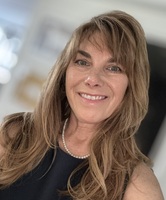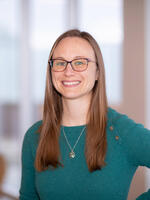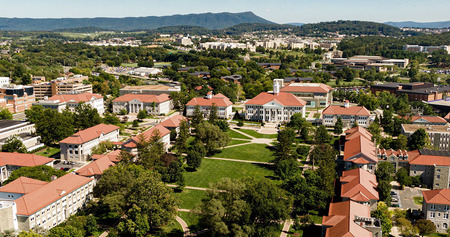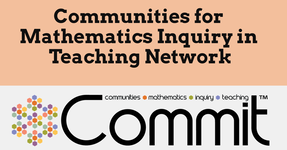
|
The Mathematical Association of America Maryland-District of Columbia-Virginia Section |
- Home
- History
- Main History Page
- Section History Document
- List of Past Officers
- Charter Members
- African-American Participation
- Stories from Section Members
- Section NExT Fellows
- Obituaries
- Smith Award Recipients
- Christensen Award Recipients
- Meritorious Service Award Recipients
- Undergraduate Award Winners
- Meeting Archive
- Past Meetings
- Talk Archive
- Old Section NExT Programs
- Newsletter Archive
- Meeting Minutes Archive
- Miscellaneous Documents
- Meetings
- Minutes
- Fall 2024 Executive
- Fall 2024 Membership
- Spring 2024 Executive
- Spring 2024 Membership
- Fall 2023 Executive
- Fall 2023 Membership
- Spring 2023 Executive
- Spring 2023 Membership
- Fall 2022 Executive
- Fall 2022 Membership
- Spring 2022 Executive
- Spring 2022 Membership
- Fall 2021 Executive
- Fall 2021 Membership
- Spring 2021 Executive
- Spring 2021 Membership
- Fall 2020 Executive
- Fall 2020 Membership
- Fall 2019 Executive
- Fall 2019 Membership
- Spring 2019 Executive
- Spring 2019 Membership
- Fall 2018 Executive
- Fall 2018 Membership
- Spring 2018 Executive
- Spring 2018 Membership
- Fall 2017 Executive
- Fall 2017 Membership
- Spring 2017 Executive
- Spring 2017 Membership
- Minutes Archive
- Newsletters
- Section NExT
- Awards
- Students
- Links
- Search
Spring 2024 Meeting at James Madison University
Conference Links
Heather Russell (on behalf of MAA MD-DC-VA COMMIT)University of RichmondFriday Workshop:: Promoting community, confidence, and creativity in the classroom Abstract: For the last decade or so, my teaching energy has been focused on finding successful ways to engage students in active learning. This is still central to what I do, but lately, I have been thinking quite a bit about community. The work of Della Dumbaugh, Pamela Harris, Deanna Haunsperger, Aris Winger, Cindy Wyels, and so many others has spotlighted the importance of community in one's mathematical journey. As Deanna's Saturday Morning Address last fall discussed, community and belonging can be a source of courage and perseverance in the face of challenge. With these resources comes greater access to creativity and joy – things we wish all students can experience. This workshop will focus on techniques for building community and belonging in the classroom and beyond. To set the tone, we will begin by reflecting on the role community has played in our own mathematical lives. To get the conversation started, I will share what I have learned from the work of folks mentioned above, my amazing colleagues, and my own experiences. My intention is that this workshop will provide a space for exchanging ideas, celebrating successes, making connections, and brainstorming new directions. Biographical Sketch: Heather M. Russell is an Associate Professor of Mathematics and the Mathematics Program Coordinator at the University of Richmond. She received B.A. degrees in mathematics and computer science from Washington College in 2003 and a Ph.D. in mathematics from The University of Iowa in 2009. Before coming to Richmond, she held post-doctoral positions at Louisiana State University and University of Southern California and also taught briefly at her undergraduate alma mater. Her research lies primarily at the interface of combinatorial representation theory and low-dimensional topology, and diagrammatic structures play a prominent role in her work. Dr. Russell is passionate about involving students in her research and building a more inclusive math community within and beyond the classroom. About MD-DC-VA COMMIT:

Hortensia SotoColorado State UniversityBanquet Address: Compassion in & Access to Learning Mathematics (CALM) Abstract: Research indicates that students from minoritized groups are more likely to pursue STEM degrees if they can see how these fields benefit their communities and if they are in classrooms where they experience micro or macro-affirmations. In this presentation, I will share my perspectives, based on research and personal experiences, on how we can create learning environments that provide our students access to learning mathematics. I argue that we can help students see the value of mathematics by challenging them, providing a supportive learning environment, and creating a space where they have a voice in their learning. Biographical Sketch: Hortensia is a Professor in the Department of Mathematics at Colorado State University. Her publications have centered on assessment, mathematical preparation of K-16 teachers, outreach efforts for high school girls, and the teaching and learning of undergraduate mathematics, where she adopts an embodied cognition perspective. For the past decade she has devoted her career to creating environments where students physically engage with abstract mathematics and researching how these environments impact students' learning. In particular, she has focused on the teaching and learning of complex variables and is now exploring the role of embodied activities in other courses such as abstract algebra and linear algebra. Hortensia has mentored young women and promoted mathematics via summer outreach programs. She has facilitated professional development for K-16 teachers in Nebraska, Colorado, and California. Hortensia is a working member of the MAA where she has served as the Associate Treasurer, the Associate Secretary, as an editor of the MAA Instructional Practices Guide, and currently serves as MAA President. She is a proud recipient of the MAA Deborah and Franklin Tepper Haimo Award for Distinguished College or University Teaching of Mathematics. In her spare time, she enjoys hiking, snowshoeing, practicing yoga, meditating, and spending time with her son Miguel. 
Adrian RiceRandolph Macon CollegeSaturday Morning Address:Ada Lovelace: The Making of a Computer Scientist Abstract: Ada Lovelace is widely regarded as an early pioneer of computer science, due to an 1843 paper about Charles Babbage's Analytical Engine, which, had it been built, would have been a general-purpose computer. Her paper contains an account of the principles of the machine, along with a table often described as ‘the first computer program’. However, over the years, there has been considerable disagreement among scholars as to her mathematical proficiency, with opinions ranging from ‘genius’ to ‘charlatan’. This talk presents an analysis of Lovelace's extant mathematical writings and will attempt to convey a more nuanced assessment of her mathematical abilities than has hitherto been the case. Biographical Sketch: Adrian Rice is the Dorothy and Muscoe Garnett Professor of Mathematics at Randolph-Macon College in Ashland, Virginia. He received a B.S. in mathematics from University College London in 1992 and a Ph.D. in the history of mathematics from Middlesex University in 1997 for a dissertation on Augustus De Morgan. His research focuses on 19th- and early 20th-century mathematics, on which he has published many research papers, articles and books. He is a five-time winner of MAA writing awards (2007, 2010, 2013, 2019, 2022) and was awarded the Catherine Richards Prize by the Institute of Mathematics and its Applications in 2021. In his spare time, he enjoys reading, travel, and spending time with his wife and young son. 
Kathryn LinehanUniversity of VirginaSaturday Afternoon Address:A Neural Network Approximation of the Proximal Operator of the L-infinity Norm Abstract: Proximal operators are common building blocks in convex optimization. In this talk, we will explore properties of the proximal operator of the L-infinity norm, leading to an algorithm for its computation. We will compare this algorithm to computation of the proximal operator using the Moreau decomposition. In the second part of the talk, we present an approximation of the proximal operator using a neural network. A novel aspect of the network is that it accepts vectors of varying lengths due to a feature selection process that uses moments of the input data. We present results on the accuracy of the approximation, feature importance, and computational efficiency of the approach. Biographical Sketch:
Kathryn Linehan is a Computational Research Scientist with the University of Virginia's Research Computing (RC) Data Analytics Center. Her background is in applied mathematics and her current research interests include numerical linear algebra, low-rank matrix approximation and applications, and scientific computing. Prior to joining RC, she was a Research Scientist with the Social and Decision Analytics Division of UVA's Biocomplexity Institute where she specialized in natural language processing and machine learning for social science applications. She will be earning her PhD this May from the University of Maryland, College Park in Applied Mathematics & Statistics and Scientific Computation. |
Copyright © 2024 - The Mathematical Association of America
Please send comments, suggestions, or corrections for this page to Brian Heinold at heinold@msmary.edu
Last Modified: 05/07/2024 - 12:27pm
 The Spring 2024 Meeting of the MD-DC-VA section of the MAA
was held at
The Spring 2024 Meeting of the MD-DC-VA section of the MAA
was held at  The MD-DC-VA COMMIT was formed in early 2016 (the group was originally called the MD-DC-VA IBL Consortium) as a network of college math instructors with a common interest in teaching and learning using inquiry. We recognize that teaching with inquiry can look very different in different contexts, and view our role as supporting instructors in utilizing the version that works for them and their students. Names that have been used for teaching with inquiry include: ambitious teaching, project-based learning, complex instruction, inquiry-oriented learning, discovery learning, inquiry-based learning, and student-centered teaching. We welcome members who are new to teaching with inquiry as well as those who are more experienced. Please join us!
See the
The MD-DC-VA COMMIT was formed in early 2016 (the group was originally called the MD-DC-VA IBL Consortium) as a network of college math instructors with a common interest in teaching and learning using inquiry. We recognize that teaching with inquiry can look very different in different contexts, and view our role as supporting instructors in utilizing the version that works for them and their students. Names that have been used for teaching with inquiry include: ambitious teaching, project-based learning, complex instruction, inquiry-oriented learning, discovery learning, inquiry-based learning, and student-centered teaching. We welcome members who are new to teaching with inquiry as well as those who are more experienced. Please join us!
See the